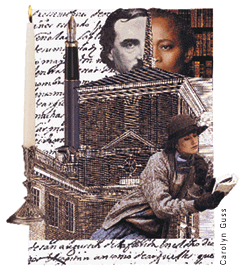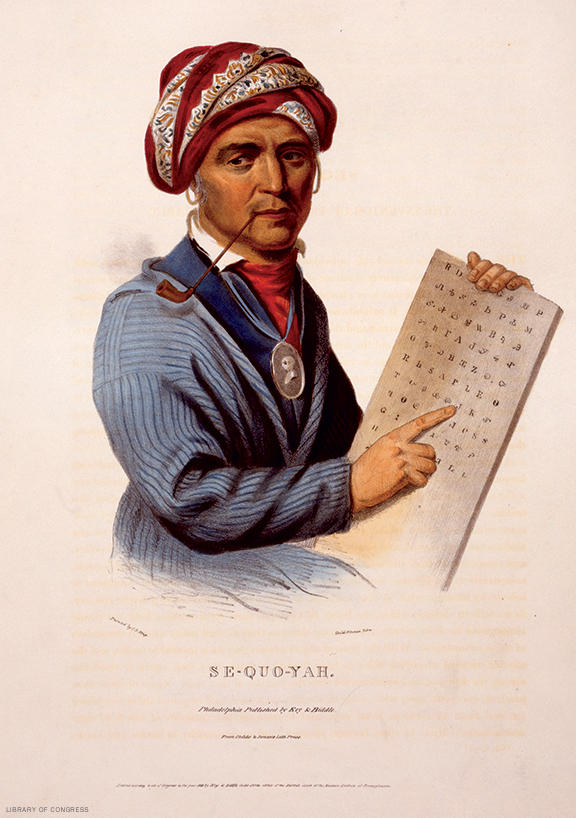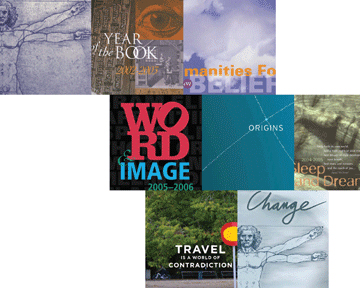
IF you want an example of how estranged academic humanists have become from the general culture of the United States, says Dr. Wendy Steiner, the Richard L. Fisher Professor of English and chair of the department, consider this: “There wasn’t a single English professor” included on the panel that selected the 100 best books of the 20th century compiled for Random House’s Modern Library imprint last summer. (True, the list was widely dismissed — for the near absence of works by women and minority writers, among other reasons — but it generated more talk about books than any event in recent memory.) “That’s symptomatic,” Steiner says. “I think we’re just left out of a whole lot of things.”
Countering that trend is one aim of the new Penn Humanities Forum, launched last month by the School of Arts and Sciences with Steiner as its director. The forum will serve as a vehicle for communicating and collaborating across disciplines within the humanities — as well as with scholars in the social sciences, sciences, and the University’s professional schools. And its vision will be translated into courses and other programs and events for students at Penn and audiences throughout the city.
The forum’s first major event is scheduled for March 26-27, when “A Celebration of Philadelphia Writers” brings together several dozen writers — all associated with the city through their work or lives — for readings, discussions, and other events.
Creation of the forum fulfills a goal enunciated in the University’s strategic plan, The Agenda for Excellence.It was designed by a committee of faculty from a variety of disciplines in the humanities — anthropology, history, classical studies, history of art, music, and English — and a similar group continues to serve as a planning board. In the view of Dr. Samuel Preston, the Frederick J. Warren Professor of Demography who serves as dean of the School of Arts and Sciences, the forum will “add coherence and excitement to our magnificent teaching and research programs in the humanities.”
Preston said he was “delighted that a scholar with Wendy Steiner’s vision has agreed to lead this effort.”
Some blame for the perceived irrelevance of the humanities to “real life” rests with scholars themselves. “The humanities, to some degree, backed themselves into a corner,” Steiner says, “becoming very sophisticated and specialized in their understanding of things and not dealing with [the fact that] they could not communicate that outside the university.”
But it doesn’t have to be that way. The national disaffection with the humanities in the U.S. stands in marked contrast with their standing in England, says Steiner, whose perceptions were fueled by the journalistic work she did while living in London. “I was amazed at how easily academics move in and out of cultural circles and general public circles, where people feel as if what they’re doing is important and valuable to the general culture, and I couldn’t figure out why no one here thinks [that] what we’re doing in the university is important to the general culture.”
Steiner, who describes one of her own books — The Scandal of Pleasure: Art in an Age of Fundamentalism — as an “attempt to bring academic thinking to the general public,” notes that she has “an investment, professionally and in every other way, in the dialogue that we’re trying to create.”
That dialogue will take place both within the University community and, Steiner hopes, between Penn and the city. “I think about what goes on culturally in Philadelphia, which is very rich and exciting, and the fact that people in the University know little about it and participate very little, and the reverse — the people of Philadelphia don’t come to the University, even though many things are free and open to the public.”
For the forum’s official launch on February 18 (after the Gazette had gone to press), representatives from a cross-section of area cultural institutions participated in a ceremony at which Dr. William Ferris, Gr’69, who chairs the National Endowment for the Humanities, was the keynote speaker. Steiner also hopes to set up an advisory board composed of members of the cultural community to create “connections between the forum and their institutions.”
The “Celebration of Philadelphia Writers” falls suspiciously close on the heels of the February event, and Steiner confirms that the idea had been developing for some time before the forum entered the picture. Originally, she proposed the celebration as an English- department project, involving various libraries and cultural institutions. “I thought it would be really exciting for the English department at Penn to give back to the community an image of Philadelphia literature,” she says, “and that this would be a way for us to show people that we are not just a bunch of dry scholars and that we care about the community.” It would also “help ‘mythicize’ the city,” she adds, since “one of the things that has always upset me about Philadelphia is how little sense of itself it has — when there are very interesting things that have gone on here.”
The celebration opens on Friday morning with a panel discussion on “Communities and Writers” and concludes Saturday afternoon with a series of readings at the Free Library. In between, offerings range from readings from the works of Edgar Allan Poe at the Poe National Historic Site to those of young experimental poets at Kelly Writers House, from Quaker and historical documents to an evening of jazz and poetry. Literary genres include poetry, fiction, non-fiction of various types, as well as film and music, and there will also be several walking tours of “Literary Phila-delphia” available. (For further information, contact Wendy Steinberg, associate director of the forum, at 215-898-8220 or via e-mail at [email protected])
In the future, notes Steiner, programming will be organized around a central theme, chosen annually, and will be more interdisciplinary. The first topic chosen could hardly be broader: human nature. “In the social sciences and the biological sciences, human nature is a very big issue right now,” Steiner explains. “The only people who haven’t weighed in on it are the humanists.” Alert to the potential threats to diversity posed by such theories, “humanities scholarship has been in a phase of denying or resisting the idea that there are universals that are essential attributes of people that cause this or that to happen,” Steiner says. For this reason, it’s actually a “fairly controversial subject for humanities to consider,” she adds. “It also puts us immediately in relationship with the sciences and the social sciences, which is one of the stated aims of the forum.”
In the fall, Steiner will “host” a general requirements course offered by the forum on the subject, during which a series of guest experts will “talk about human nature from their disciplinary point of view.” Besides being open to undergraduates, the course will also be available to the Philadelphia public as a subscription lecture series.
The forum has also begun administering an existing Mellon Foundation grant to SAS that supports annual fellowships for visiting junior faculty to pursue research during a year of paid leave. The program has been reconfigured to ensure that applicants’ proposed research will have some connection with the forum’s chosen topic. Besides sharing their work among themselves and with the forum’s planning board in regular meetings, the faculty fellows will be expected to teach a course each term. “We’re hoping that those courses will be freshman seminars,” Steiner says. “The University is really invested in the freshman seminar program. This is a way of beefing up that program, and the synergy is very nice.”
In a program that mimics the faculty fellowships, the forum is also awarding several student fellowships, and is working with Perspectives in Humanities, a student group in Kings Court/English House. One fellowship of $1,500 will go to a student coordinator between the forum and Perspectives in Humanities for research support and to help fund programming; smaller ones of $300 each will be for original research in the humanities.
While a number of universities have established humanities centers, most are traditional “think tanks” that are limited to supporting research. “That model specifically was not what the University wanted — a self-regarding research-oriented humanistic support-system for scholars to go on leave every year,” Steiner says. “Supporting humanities research is something we’re interested in, but by setting it up this way and by creating a connection between the kind of interests [faculty fellows] have and the course that will be going on and the students’
work, we’re hoping that that specialized research will have a payoff for
a lot of people.”
What also sets the forum apart and makes it unique to
Penn, Steiner says, is the effort to forge connections with Philadelphia.
“When does a university provide a celebration of community art and
culture for the community?” she asks pointedly. “It doesn’t
happen.”
It does now.



